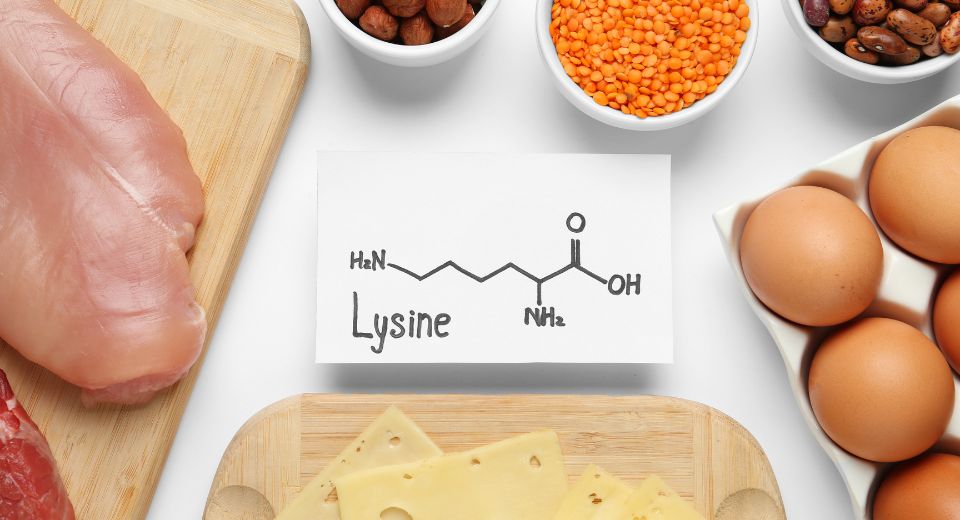
Author: Bree Maloney, Manager
Lysine is an essential amino acid that is mostly found in animal products. Your body doesn’t naturally produce lysine, so you need to obtain it from outside products such as food or supplements.
Health Benefits of Lysine
- Can improve wound healing in your body. Lysine is a building block for protein, which acts as a binding agent, thereby increasing the number of new cells at a wound. It may even promote the formation of new blood vessels. It helps the body create collagen, which is present in bones and connective tissues such as skin and cartilage.
- May reduce anxiety by blocking stress response receptors. Studies have shown that lysine could reduce levels of the stress hormone cortisol.
- May prevent and treat cold sore outbreaks. Cold sores or fever blisters that often appear on the lip or corners of the mouth. They are caused by a simplex virus, (HSV-1) and in times of stress or if your immune system is weakened, HSV-1 can trigger the development of a cold sore. According to research, lysine may help prevent HSV-1 from replicating and reduce the duration of a cold sore. It’s also thought that lysine blocks another essential amino acid, arginine, which viruses need in order to multiply and grow.
Foods that are High in Lysine
You can buy lysine supplements, but those with liver or kidney disease should contact their health care provider prior to taking them. Pregnant or breastfeeding women should use caution.
- Meat and poultry: Beef, pork, and poultry are all good sources of lysine (including lamb). To promote heart health, most people should choose lean cuts and keep serving sizes small.
- Cheese and Dairy: Almost all cheeses are high in protein and calcium. The cheese with the most lysine is parmesan. Other dairy choices are yogurt and milk.
- Fish: Most health professionals favor fish as a source of healthy protein. Cod, salmon, tuna, and sardines are especially high in lysine.
- Soybeans: Tofu is an excellent source of lysine. If you aren’t a tofu fan, you can also get lysine from soy protein and soybean flour.
- Legumes: Legumes are another protein powerhouse and most are high in lysine. Choose from beans, peas, chickpeas, lentils, peanuts, and more.
Most people get plenty of lysine through their diets. However, taking lysine supplements could be helpful for people who don’t eat a lot of lysine-rich foods like meat, fish, eggs, dairy, and beans or for those who are trying to manage a specific condition. Lysine supplements are most commonly available as capsules and/or powders. You can take lysine on its own or you can take it alongside other amino acids, like arginine. Higher doses of lysine may be safe, but they may cause side effects like diarrhea, cramping and nausea in some people. Some people may require higher doses or lower doses of lysine, so it’s best to speak with a health care provider if you have any questions regarding lysine.
The information provided is for general interest only and should not be misconstrued as a diagnosis, prognosis or treatment recommendation. This information does not in any way constitute the practice of medicine, or any other health care profession. Readers are directed to consult their health care provider regarding their specific health situation. Marque Medical is not liable for any action taken by a reader based upon this information.

